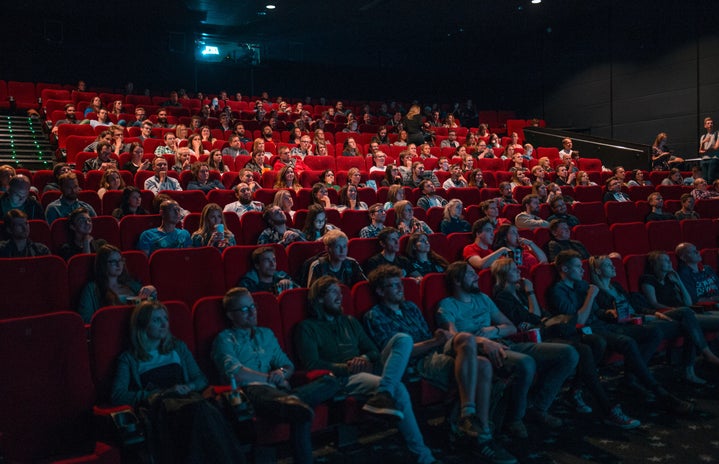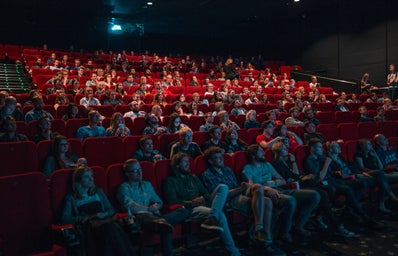Since the COVID-19 pandemic, the film industry has been having a renaissance. Celebrities are essential influencers in our modern society, and people have been flocking to movie theaters to see their favorite stars. Additionally, many people have turned into passionate theater-goers not just to see the latest heartthrob, but also because of the movies themselves. During the pandemic, many, including myself, turned to different forms of media like movies as a form of escapism when the world outside our homes was chaotic, confusing and scary. As that current climate persists on a global scale, the public continues to find solace in leaving reality behind to enter a different one and become completely immersed in a story and its characters.
Specifically, many turned to fantastical stories as a form of escaping reality. For example, the Marvel franchise and superhero movies have exponentially grown in popularity over the past decade with audiences young and old enjoying stories where the good guys win and the bad guys lose on an epic scale. However, people don’t just watch superhero movies for the moral code; superhero movies contain extravagant stunts, interesting costumes and character building that allows people to identify with those on the screen and the world they exist in.
This year, “Poor Things” made waves for its fascinating cinematography and costuming. Despite sparking some ethical discussions, it is difficult not to lose yourself in the elaborate set design, eccentric characters and colorful costuming when watching the film. Not only this, but as the film industry continues to make more money, movie-making becomes more lavish and dramatic as a result of immense funding. Even though the film followed a real person and true historical events, “Oppenheimer” attracted audiences with grand-scale action sequences and sweeping cinematography. Despite being based on history that happened (in the grand scheme of things) not too long ago, the movie itself felt like it was of another world, allowing viewers to submerge themselves completely in the story and leave today’s reality at the door.
Despite humanity and society on a global scale feeling rather disastrous, people still gravitate towards human-centered stories. Even though many movies came out in 2023 that were grandiose and impressive, some of the most popular films of the year were the least elaborate and, at their core, human. “The Iron Claw” felt similar to “Oppenheimer” in the sense that while they were both real-life stories, they felt like they existed in an entirely different world.
In “The Iron Claw,” the viewer enters the denim-clad, shaggy-haired era that was the 80’s and 90’s with intensive wrestling stunts. However, at the heart of the film is a difficult, human-centered story that focuses on the love the Von Erich brothers had for one another in the face of continuous tragedy and hardships. In addition, movies like “Past Lives” and “All of Us Strangers” focus on themes of love, family relationships, cultural agility, sexuality and how much our parents screw us all up, of which everyone can identify with at least one. These films were both people-centered (well, despite Andrew Scott’s ghost parents in “All of Us Strangers”), real and raw, pulling at the heartstrings of audiences all over the globe. My favorite film of the year was “American Fiction,” which is another phenomenal example of the stories centered around issues very applicable to the audiences viewing them, including family (again), love, the arts and race, specifically in the United States.
Even though the world can be scary, hard-to-deal-with, enraging and hurtful, we have beautiful resources like movies to help us escape to another world for a while, especially when the one we reside in gets too difficult. Despite that, people still look towards relatable, human stories, even when they’re looking for a distraction. You would think in a world like the one we live in today, everyone would be seeking stories with worlds vastly different than our own to truly escape to another place.
But, continuously, people reach for stories about other people and seek characters with experiences that mirror our own. Human-centered films are still essential in our society. While we may not experience the same escapism a fantastical world could provide us, movies about people help us feel connected to one another in times of great divide and anguish as a society. I think these films remind us of the good parts of humanity but more so just how similar we all are. So yes, while fantasticism is fun, exciting, and allows audiences to get heavily immersed and involved, people will continue to seek human-centered films for the same reason humanity has always been interested in art: to see a piece of ourselves reflected in the mirror held up by the artist and to be able to say to ourselves, “I am not alone out here in this world that can feel so big.”


